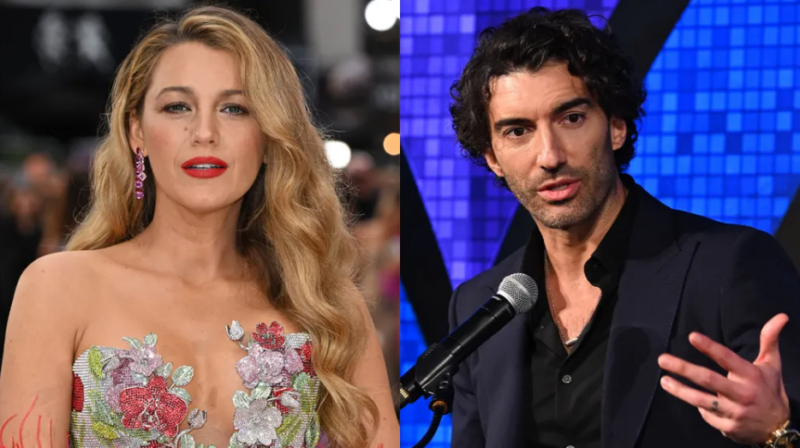
“When they start to whack the lawyers, that’s when I draw the line,” fretted attorney Saul Goodman in an episode of Breaking Bad after one of his colleagues was murdered.
A similar anxiety has now gripped Hollywood’s publicity class amid the Justin Baldoni–Blake Lively legal battle in which several top PR names have become major players in a war that has riveted the town. According to several personal and studio publicists interviewed by The Hollywood Reporter, the scandal has already changed how representatives who are not involved with the case operate — perhaps permanently.
“This will change the personal publicist game forever, 100 percent,” declares one veteran personal publicist. “When a client says, ‘I want you to protect my reputation and get ahead of this story,’ or, ‘I don’t like that headline, can you call reporter?’ No way. If what you’re doing has ramifications for another [celebrity], you’re now going to think that you could get sued.”
Take, for example, one of the claims in Baldoni’s lawsuit: That Lively’s publicist Leslie Sloane lobbied a Daily Mail reporter back in August to change a story. The reporter planned to write that an internal power struggle between Lively and Baldoni on their film It Ends With Us had resulted in the actress being “labeled as difficult.” Sloane insisted via text messages to the reporter: “You have it all wrong … the whole cast hates [Baldoni].”
Sloane’s efforts to change the story were allegedly successful. But as any reporter can attest, a publicist giving additional information on background to try and make a story more friendly to their client isn’t some rare event, but extremely common. Now Sloane is among those being sued by Baldoni, while Lively is suing Baldoni’s crisis manager Melissa Nathan, along with publicist Jennifer Abel.
“I feel bad for them because [some of the things they] were asked to do are things that just about any [publicist] would have done without question,” adds the veteran publicist. “But not now.”
One longtime studio publicist notes, “I think good comms execs will always have plans in place to help protect their clients, but now they have to ask themselves: If their strategy is leaked, would they still stand by it? Protecting a client and playing defense is one thing; targeting others proactively is completely another.”
In addition to the reputational harm and humiliation that might come with a lawsuit, personal publicists are also concerned about racking up financially ruinous legal fees. Studio publicists are typically protected from being sued by their companies. But independent personal publicists, or those who work at small firms, usually don’t have such protection. Their clients are often multimillionaires with extensive resources, yet they pay as little as $5,000 a month and don’t indemnify their representatives in case something goes wrong. “The whole relationship is based on trust,” the veteran rep notes.
“There is zero legal protection for us and [the Baldoni case] does make me more afraid,” says another longtime personal publicist who segued from working at a major agency to launching their own company. This publicist admits he’s not proud of things they’ve done to hide client behavior in the past. “A lot of the times, we are at the mercy of the people who pay our bills,” the publicist says. “When I worked at [a major PR agency], we were instructed that the client came first, and their money came first. So if the client told us to do something, and they were paying for it, then you do it. Now we are all being cautious.”
Multiple publicists say they’re considering adding legal indemnification into future contracts so that clients are obliged to protect them. “This is something publicists are talking about, but it’s not actually a thing yet,” one says. The obvious concern is that such a move could result in a loss of business, as there are always plenty of young publicists who are struggling to build their brands and eager to add a famous name to their client list without being too picky about contract terms.
The boutique agency owner notes that the Baldoni case has also impacted his business in an entirely unexpected way. “I had a prospective client say to me, ‘Because of this, I don’t know if I want to get a publicist right now. I don’t want people thinking I have something to hide.’”
This publicist isn’t a crisis manager — a branch of publicity known for aggressive and secretive tactics — but notes such distinctions are not widely understood. “Clients don’t see the difference [between a crisis manager and a publicist],” he says, adding with a laugh: “They think that’s what we all do — sit in our ivory towers and look for who we can take down to get our clients ahead.”
All of this isn’t to say that publicists believe the representatives involved in the Lively vs. Baldoni case are entirely blameless for their fates. Nathan and Abel infamously traded text messages that sounded like they were gleefully plotting to smear Lively (Baldoni’s suit insists the duo’s ideas were never successfully implemented or, in some cases, that they were joking).
“From the very start of the Lively-Baldoni shitshow, it was PR who kind of made the situation worse,” notes a third veteran publicist, who believes that the case is “changing the face of PR.”
The fiasco, notes a veteran studio publicist, brings to mind something that publicists are taught at the very start of their careers. “All comms folks are taught from day one: Never put anything in writing you wouldn’t want on the front page of The New York Times,” she says. “This has been a reminder of that all-important rule.”









